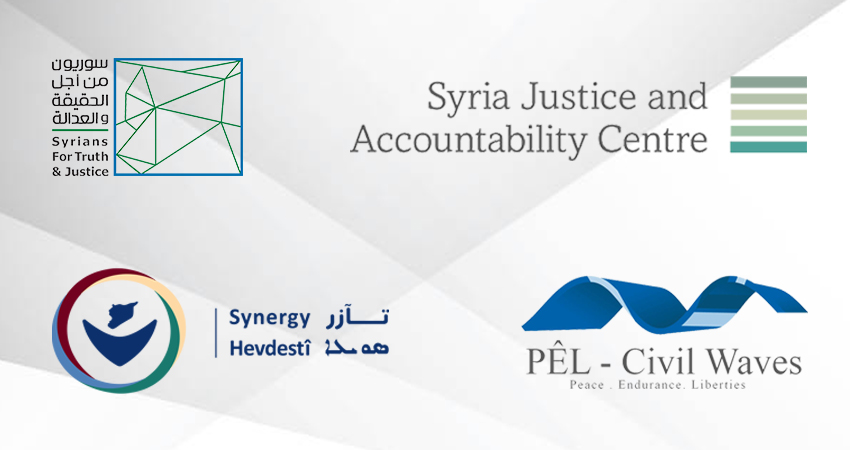On the evening of June 11, 2019, Ranim Khattab, 20, was sitting with her young child in Kafr Lousin camp when Turkish border guards fired directly at the rudimentary dwellings where internally displaced Syrians were sheltering in. A witness said that while the border guards had frequently fired shots into the air from their guardhouse, they had never targeted the camp itself. While witnesses took cover, Ranim was shot in the throat and her child seriously wounded. Ranim died soon after.
Ranim and her young child are only two of the dozens of the unarmed Syrian civilians killed and injured by the Turkish military, mostly border guards (Gendarmerie), despite not posing a threat to Turkish forces. Syrians for Truth and Justice (STJ), the Syria Justice and Accountability Centre (SJAC), PÊL – Civil Waves, and Hevdestî – Synergy submitted dozens of incidents of unjustified, excessive, and unnecessary lethal use of force by Turkish forces to the UN Special Rapporteur on Extrajudicial, Summary, or Arbitrary Executions to highlight a pattern of conduct by the Turkish military that constitutes a clear violation of Syrian civilians’ right to life within the Syrian territories by Turkey and the border areas between the two countries.
“Special Procedures are essential to shed light on human rights violations,” said Cecilia Pechmeze, who worked on the submissions. “The independent experts receiving NGO’s submission have the power not only to investigate but also to engage with countries whose violations have been reported. In the best cases, this can bring about dialogue and contribute to change.”
In cases like Ranim’s, unarmed civilians were killed and injured in border areas as they were moving about their daily lives. Only this February, Yazan Bakeer, a young boy, was shot and killed by Turkish border guards as he was playing on his family’s farm in the province of Idlib. His grandfather, who was with Yazan as he was shot, said: “The shooting had to be deliberate. Turkish soldiers intended to shoot us. Turkish soldiers at the border have been violent and reckless.”
In other cases, civilians were targeted by the Turkish military as they attempted to cross the Turkish border. Even though Turkey claims it is still committed to the Open-Door Policy, residents in opposition-held areas are denied official channels for seeking asylum. They are left with one illegal and dangerous alternative: crossing the border illegally. Asylum seekers resort to smugglers who facilitate individual or group cross-border smuggling operations to Turkish territories through tunnels or mountainous terrains in exchange for exorbitant sums of money.
Despite Turkey’s aggressive efforts to deter border-crossings, Syrian civilians continue to attempt the journey in the hope of a better life in Turkey. Many of these border crossers have been beaten, tortured, and killed. For example, Zahir S.’s 21-year-old brother and cousins attempted to cross the Turkish border in 2018 to find work. They were caught by Turkish border guards and severely beaten, tortured, and left on the other side of the Turkish border. By the time Zahir and his family found them, his brother and one of his cousins were dead.
There is no indication of the legal basis nor legitimate aim of the excessive use of force evident in the cases we investigated. Additionally, there was no respect for the principles of necessity or proportionality as the use of force did not seem to have been strictly necessary to achieve a supposed legitimate aim. Instead, victims seem to have been arbitrarily deprived of their right to life, violating domestic Syrian, Turkish, and international human rights laws. Furthermore, none of the incidents we submitted have been officially investigated by responsible authorities, and no official detailed account on the facts of any of the cases issued.
In light of these incidents, the four Syrian organizations prepared several recommendations for the UN Special Rapporteur:
- First, we urge the Special Rapporteur to continue to examine situations of extrajudicial, summary or arbitrary executions in all circumstances and for whatever reason, and to submit their findings on an annual basis, together with conclusions and recommendations, to the Human Rights Council and the General Assembly, and to draw the attention of the Council to serious situations of extrajudicial, summary or arbitrary executions that warrant immediate attention or where early action might prevent further deterioration.
- Second, we demand the Special Rapporteur continue to draw the attention of the United Nations High Commissioner for Human Rights to serious situations of extrajudicial, summary or arbitrary executions that warrant immediate attention or where early action might prevent further deterioration;
- Third, we urge the Special Rapporteur to respond effectively to information that comes before them, in particular when an extrajudicial, summary or arbitrary execution is imminent or threatened or when such an execution has occurred;
- Fourth, we urge the Special Rapporteur to enhance their further dialogue with Governments, as well as to follow up on recommendations made in reports after visits to particular countries;
- Fifth, we urge the Special Rapporteur to continue to monitor the implementation of existing international standards on safeguards and restrictions relating to the imposition of capital punishment, bearing in mind the comments made by the Human Rights Committee in its interpretation of article 6 of the International Covenant on Civil and Political Rights, as well as the Second Optional Protocol thereto.

